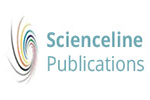(2022) Detection of Molecular Diversity in Novel Bovine Viral Diarrhea Virus Strains Isolated from Bull Semen Associated with Histopathological Findings. World's Veterinary Journal. pp. 164-174. ISSN 2322-4568
|
Text
WVJ 12(2), 164-174, June 25, 2022.pdf - Published Version Download (587kB) |
Abstract
Bovine viral diarrhea virus (BVDV) is one of the most common viral pathogens affecting the cattle industry worldwide. The present study aimed to molecularly characterize BVDV isolates that are currently circulating in breeding bulls farmed with cattle suffering from reproductive disorders, and also to assess the consequences of BVDV infection on bulls’ semen quality and conception, and its pathological effects on the structure of testicular tissue and spermatozoa. For this purpose, semen, serum, and testicular samples were collected from four breeding bulls in four private dairy farms in the governorates of Kafr-El Sheik, Beni-Suef, Giza, and Assuit, in Egypt from April 2019 to May 2020. An evaluation of sperm abnormalities was carried out by assessing the integrity of the plasma and acrosomal membranes where severe damage and abnormalities were found. Ultrastructure analysis of the spermatozoa by transmission electron microscopy revealed the presence of a swollen plasma membrane with segmented outer acrosomal membrane of spermatozoa and vacuolar degenerated mitochondria. Histopathological examination of testicular and epididymal tissues indicated moderate to severe degenerative effects of virus infection on seminiferous tubules with hypospermatogenesis. By detection of virus antigen in the serum samples using ELISA, bulls were identified as persistently infected with BVDV. Virus isolation revealed four noncytopathic (NCP- BVDV) strains that were confirmed by fluorescent antibody technique (FAT) and amplification of the 5′ untranslated genomic region (5’UTR) and molecularly typed by amplification of the Erns glycoprotein region. Isolates’ Phylogenetic analysis revealed two subgenotypes: BVDV-1b (Genbank accession numbers; LC634512, LC634513, LC634515) and BVDV-1d (LC634516). According to the knowledge of the authors of the present study, the circulation of the BVDV-1d subgenotype is not reported in Egypt. Therefore, it would be of great importance to track circulating strains in specific countries for successful vaccination programs or accurate diagnostic tests, and this necessitates regular updates. © 2022
| Item Type: | Article |
|---|---|
| Keywords: | Bvdv; Isolation; Sperm abnormalities; Spermatozoa ultrastructure; Testicular histopathology |
| Subjects: | Q Science > Q Science (General) S Agriculture > SF Animal culture |
| Divisions: | World's Veterinary Journal (WVJ) |
| Page Range: | pp. 164-174 |
| Journal or Publication Title: | World's Veterinary Journal |
| Journal Index: | Scopus |
| Volume: | 12 |
| Number: | 2 |
| Publisher: | Scienceline Publication, Ltd |
| Identification Number: | https://doi.org/10.54203/scil.2022.wvj21 |
| ISSN: | 2322-4568 |
| Depositing User: | Dr. Alireza Sadeghi |
| URI: | http://eprints.science-line.com/id/eprint/677 |
Actions (login required)
 |
View Item |

